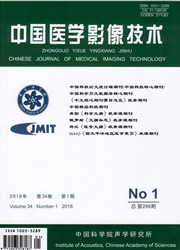

 中文摘要:
中文摘要:
肝癌的治疗方法日趋多样化,对治疗后的随访及监测提出了更高的要求。包括MRS、DWI及PWI在内的功能磁共振是一种无创性检测方法,可以从局部及整体了解肝脏的代谢、能量及血流等的变化,其在肝脏显像中的不断发展对评价肝癌治疗后的疗效及预后有着深远的意义。本文旨在揭示肝脏功能磁共振的原理以及目前在辨别肿瘤生物学特性中的作用,评价肝癌对治疗的反应,并探索性地提出了功能磁共振在肝癌监测中的应用前景。
 英文摘要:
英文摘要:
Multi-treatments for hepatocellular carcinoma place greater demands on follow-up for tumor response, functional MRI (fMRI) which mainly contains MRS, DWI and PWI, is a non-invasive technique which can detect regional and global alterations in liver metabolic processes and celluar energy states as well as blood flow. Continued progress in this new field of liver imaging may have profound implications for diagnosing and estimating therapeutic effect of hepatocellular carcinoma. The purpose of this review is to expound the principles of in vivo hepatic fMRI, to examine its present place in the diagnostic assessment of tumor biological characteristics, to appraise the response of the tumor to treatment and to evaluate the prospects for fMRI in application of prognostic tests of hepatocelluar carcinoma.
 同期刊论文项目
同期刊论文项目
 同项目期刊论文
同项目期刊论文
 期刊信息
期刊信息
